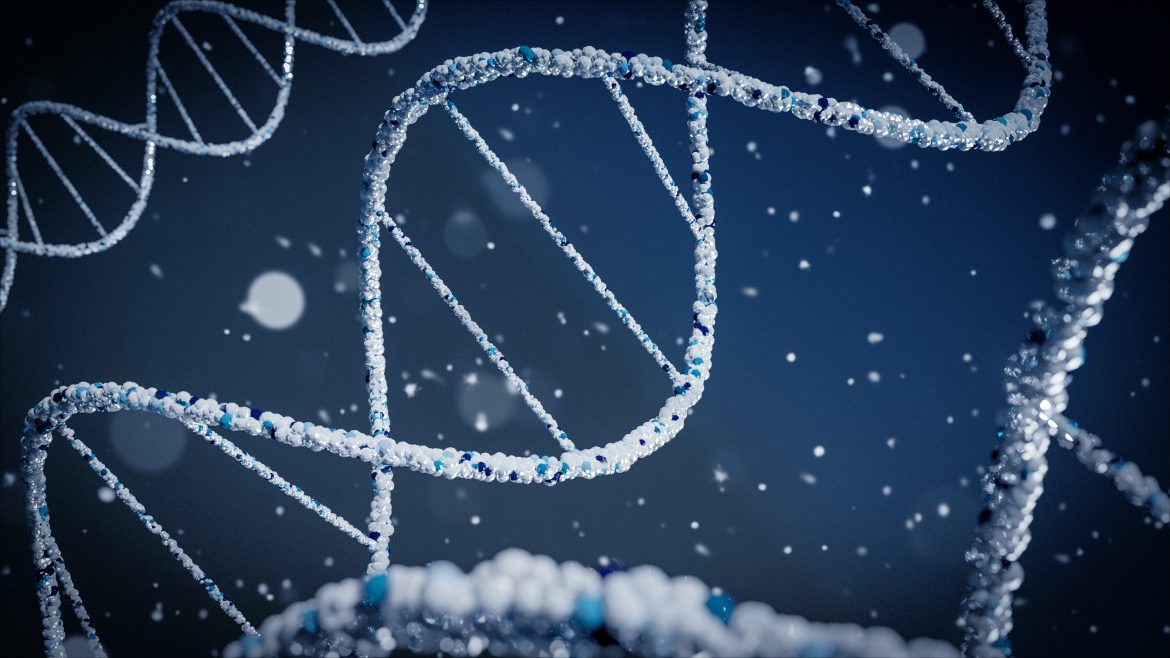Welcome to the fascinating world of telomeres, the molecular heroes at the heart of aging research.
Have you ever wondered why we age, and if there’s a secret code buried within our cells that holds the key to eternal youth? Well, wonder no more! In this article, we will dive deep into the intricate science of telomeres and uncover how they play a vital role in the aging process.
What are Telomeres?
Imagine your DNA as a shoelace that carries all your genetic information. At the ends of these shoelaces, there are tiny protective caps called telomeres. These telomeres function like guardians, shielding your genetic material from damage during cell division. Picture it as the plastic tip of a shoelace that prevents fraying. As cells replicate over time, these telomeres gradually shorten, ultimately leading to aging.
Telomeres and Cellular Aging
With each cell division, the telomeres become slightly shorter, much like a candle’s wick getting shorter as it burns. When telomeres reach a critically short length, cells enter a state called senescence, where they can no longer divide and contribute to tissue repair. This phenomenon is known as the Hayflick limit. As more and more cells undergo senescence, our bodies gradually show signs of aging.
The Telomerase Enzyme
But fear not, there’s a superhero enzyme called telomerase that comes to the rescue! Telomerase has the incredible power to extend telomeres, slowing down the shortening process and maintaining cell integrity. However, not all cells have the same levels of telomerase activity, leading to differences in aging rates among various tissues.
Telomeres and Aging: The Research
Scientists around the globe have been intrigued by the connection between telomeres and aging. Research has shown that shorter telomeres are associated with an increased risk of age-related diseases, such as heart disease, diabetes, and neurodegenerative conditions. Longitudinal studies have been instrumental in tracking telomere length changes over time and their correlation with the aging process.
Telomeres and Lifestyle
It turns out that our lifestyle choices can impact telomere length too. Chronic stress, poor dietary habits, sedentary lifestyles, and lack of sleep have been linked to accelerated telomere shortening. On the other hand, adopting a healthy lifestyle with regular exercise, a balanced diet, stress management, and sufficient rest can help preserve telomere length and promote healthy aging.
Telomeres and Genetics
While lifestyle plays a role, genetics also influence telomere length. Certain individuals may inherit shorter telomeres, putting them at a higher risk of premature aging and age-related diseases. Understanding the genetic factors affecting telomeres opens up new avenues for personalized medicine and interventions targeting specific aging pathways.
Telomeres, Aging, and Cancer
As we delve deeper into telomere research, we find intriguing links between telomeres, aging, and cancer. Cancer cells can hijack telomerase, using it to maintain their telomeres and divide uncontrollably. On one hand, this immortality trait makes cancer cells deadly, but on the other hand, it provides a potential vulnerability for new cancer treatments.
Telomeres and Anti-Aging Interventions
The pursuit of eternal youth has led to the development of anti-aging treatments that aim to manipulate telomeres. Some interventions claim to lengthen telomeres and slow down aging. However, caution is needed, as these treatments are still in their infancy, and ethical concerns about their long-term effects persist.
The Future of Telomere Research
As technology and research methodologies advance, so does our understanding of telomeres. The future of telomere research holds the promise of groundbreaking discoveries. We might witness revolutionary anti-aging therapies and targeted interventions that can extend human health span significantly.
Telomeres are like the timeless guardians of our cells, protecting our genetic legacy from the ravages of time. Understanding the science behind telomeres and aging unlocks the potential for a healthier and more vibrant life. As we continue to crack the code of aging, let us embrace this knowledge and strive to live our best lives.
FAQs
Q1. Can telomeres stop aging completely?
A1. While telomeres play a crucial role in aging, they are not the only factor. Aging is a complex process influenced by various genetic, environmental, and lifestyle factors.
Q2. Is there a way to measure my telomere length at home?
A2. Yes, there are direct-to-consumer kits available that claim to measure telomere length from a simple blood sample. However, the accuracy and reliability of such kits can vary, so it’s essential to interpret the results cautiously.
Q3. Are telomere-based anti-aging treatments safe?
A3. Current telomere-based anti-aging treatments are experimental and not yet proven to be safe and effective in the long term. Consult with healthcare professionals before considering any such interventions.
Q4. Can lifestyle changes reverse telomere shortening?
A4. While lifestyle changes can slow down telomere shortening, they may not completely reverse the process. Nonetheless, adopting a healthy lifestyle can improve overall health and well-being.
Q5. Is there a natural way to boost telomerase activity?
A5. Some studies suggest that certain lifestyle choices, such as regular exercise and stress reduction, may enhance telomerase activity. However, more research is needed to establish concrete recommendations.


